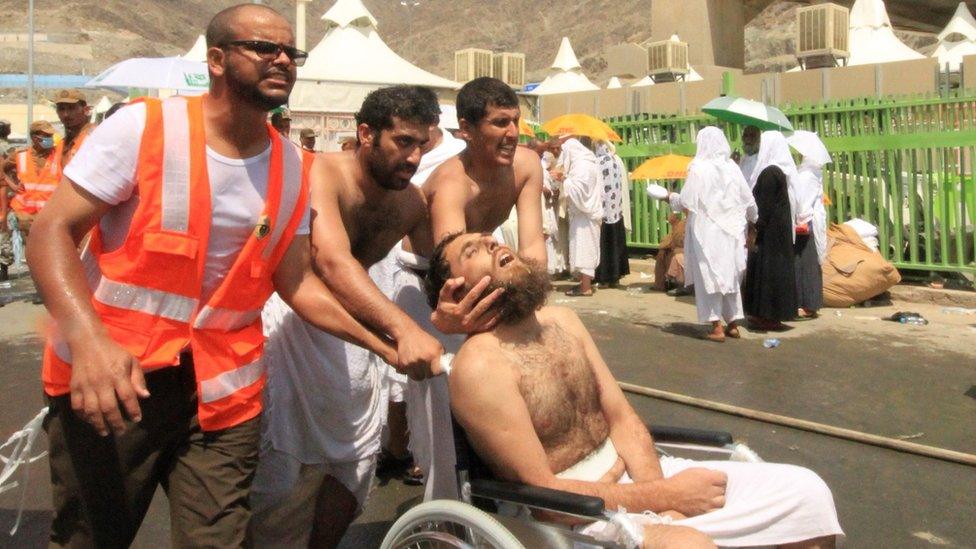Hajj pilgrims to be given e-bracelets
- Published

The Hajj attracts huge crowds and has often been very difficult to control
Saudi Arabia is to issue electronic bracelets to pilgrims travelling to Mecca for this year's Hajj, the world's largest Islamic gathering.
It follows a stampede last year in which more than 750 people are believed to have died, with 900 injured.
The bracelets will contain personal and medical information to help authorities care for and identify people, according to the Saudi Press Agency.
Nearly 1,000 new surveillance cameras have also been installed.
The ID bracelets will contain crucial information such as passport numbers and addresses but will also offer information to worshippers, such as timings of prayers and a multi-lingual help desk to guide non-Arabic speakers around the event.
They will be water-resistant and connected to GPS. The information can be accessed by employees of the ministry, and security and services bodies via a smartphone.
Safety push
Cameras have been installed at Mecca's Grand Mosque and will be linked to control rooms staffed by special forces monitoring pilgrim movements for the event scheduled for August, according to Saudi newspapers.
2015 was the deadliest year for the pilgrimage in 25 years.
The tragedy led Saudi's King Salman to promise improvement in the level of organisation and led to a souring of the already-strained relationship with neighbouring Iran.
Iran, which lost 400 of its citizens in the crush, has criticised Saudi Arabia's preparedness and said that it will not send pilgrims to this year's gathering.
The annual pilgrimage to Mecca is attended by more than two million Muslims from around the world and has long been something of a safety nightmare.
Over the years the Saudi authorities have spent billions of dollars on improving transport and other infrastructure.
- Published24 September 2015

- Published24 October 2013
